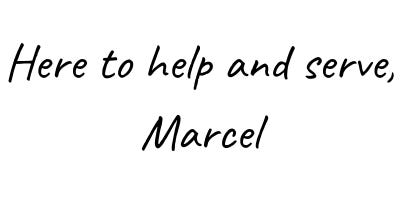Humility: Your Secret Weapon to Better Leadership
Today, I share a preview of Chapter 5 from my new book, Humane Leadership: Lead with Radical Love, Be a Kick-Ass Boss.
The world of leadership needs a humane shift.
Away from fear-based control and towards an approach that values emotional intelligence, growth, purpose, and service to all stakeholders.
In Humane Leadership, you’ll learn how to create an environment where:
Your team feels empowered, respected, and supported to do their best work.
You lead with authenticity and confidence, inspire radical and practical love, and drive exceptional performance.
Are you looking to revolutionize your leadership style and create a workplace culture that attracts top talent, fosters lasting loyalty, and achieves outstanding business success for your organization?

The conventional wisdom of the 20th century dictates that humble leadership is a weakness. Dictionaries generally define humility as having a modest or low view of one’s importance, and a big common misconception is that humility involves self-degradation or being meek. According to a 2016 study by the College of Charleston, 56% of 5th and 6th-graders believe that humble individuals feel embarrassed, sad, lonely, or shy. Interestingly, when adults are asked to recall a time when they felt humble, they often describe a publicly humiliating experience!1
The false notion that humble leadership is soft is dangerous because it sends more people down the risky path to arrogance. Most business leaders in positions of authority wish to command respect, manage talent to high performance, and achieve growth and success. But what they think is a show of strength, fortitude, and a take-charge attitude is actually the tenets of self-centeredness that will hold them back. By leading this way, they’ll find they’re undermining the things they want most: respect, high performance, growth, and success. How does arrogance hurt a leader’s performance and the performance of their company? The arrogant leader…
Refuses to be wrong and fails to confront current reality.
Blames everyone except themselves.
Does not listen to other voices outside their own.
Takes credit for people’s work.
Holds on to power and control instead of delegating.
Excludes others.
Undermines people’s expertise.
Courageous leaders willing to take the journey toward humility experience long-term effects in how team members respond. Leading with a humble approach will also help leaders get what they want—respect, success, and growth. You will gain more respect, achieve more success, and grow your reputation and business.
Becoming humble starts by questioning ourselves, even when we are certain of our abilities or knowledge. We must remember the words of Socrates, who said, “The only true wisdom is in knowing you know nothing.” To make this rich Love in Action principle most applicable to the workplace, we will follow a roadmap that breaks down humble leadership into four parts, according to the literature and best practices. Some of them may require the development of interpersonal skills; others will require breaking away from long-held beliefs and dismantling the organizational status quo that has held humble leadership hostage. But, again, we must not forget the premise for developing and practicing humble leadership, something we will always come back to in this chapter. It leads to achieving respect, success, and growth.
To make your humble leadership journey meet all three objectives, you must:
1. Accept the limit of your knowledge.
2. Ask for help.
3. Be willing to admit mistakes.
4. Embrace curiosity as the path to learning and growing.
Note: The four principles above are covered in-depth in Chapter 5, with examples backed by research, case studies, and best-in-class leadership behaviors.
PS. Take a moment to reflect on Socrates’s quote, “The only true wisdom is in knowing you know nothing.” Was he right? Can we actually know nothing?
If you’re joining me for the first time - welcome!
You’ve arrived at a place dedicated to helping you grow as a leader. To get started, click the red button below, and I’ll do everything I can to provide you with insights, tools, and pathways to help you lead with greater clarity, impact, and care.
Whenever you’re ready, here’s how I can help:
Humane Leadership: Ready to make the shift to humane leadership? Humane Leadership shows you how to create an environment where your team feels empowered, respected, and supported, while you lead with authenticity and confidence, attract top talent, foster lasting loyalty, and achieve outstanding business success.
Answer Your Leadership Questions: Do you need immediate guidance on a specific leadership issue? As a Substack Founding Member, you'll receive a 45-minute coaching session designed to provide practical solutions and clarity now.
Unlock Your Leadership Potential: Most coaching focuses on what leaders do - but real change starts with who you are. My coaching helps you build deep self-awareness, expand your influence, and create meaningful, lasting impact within your team and organization. Schedule a 30-Minute Discovery call to learn more.
Wright, J. C., Nadelhoffer, T., Perini, T., Langville, A., Echols, M., & Venezia, K. (2017). The psychological significance of humility. The Journal of Positive Psychology, 12(1), 3-12.






